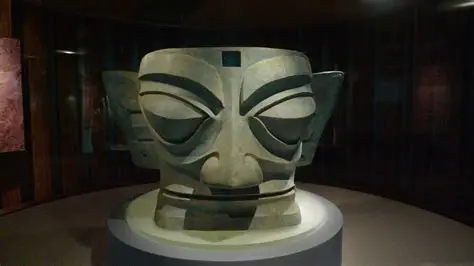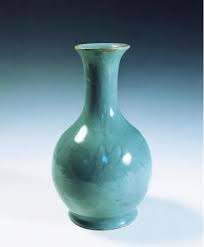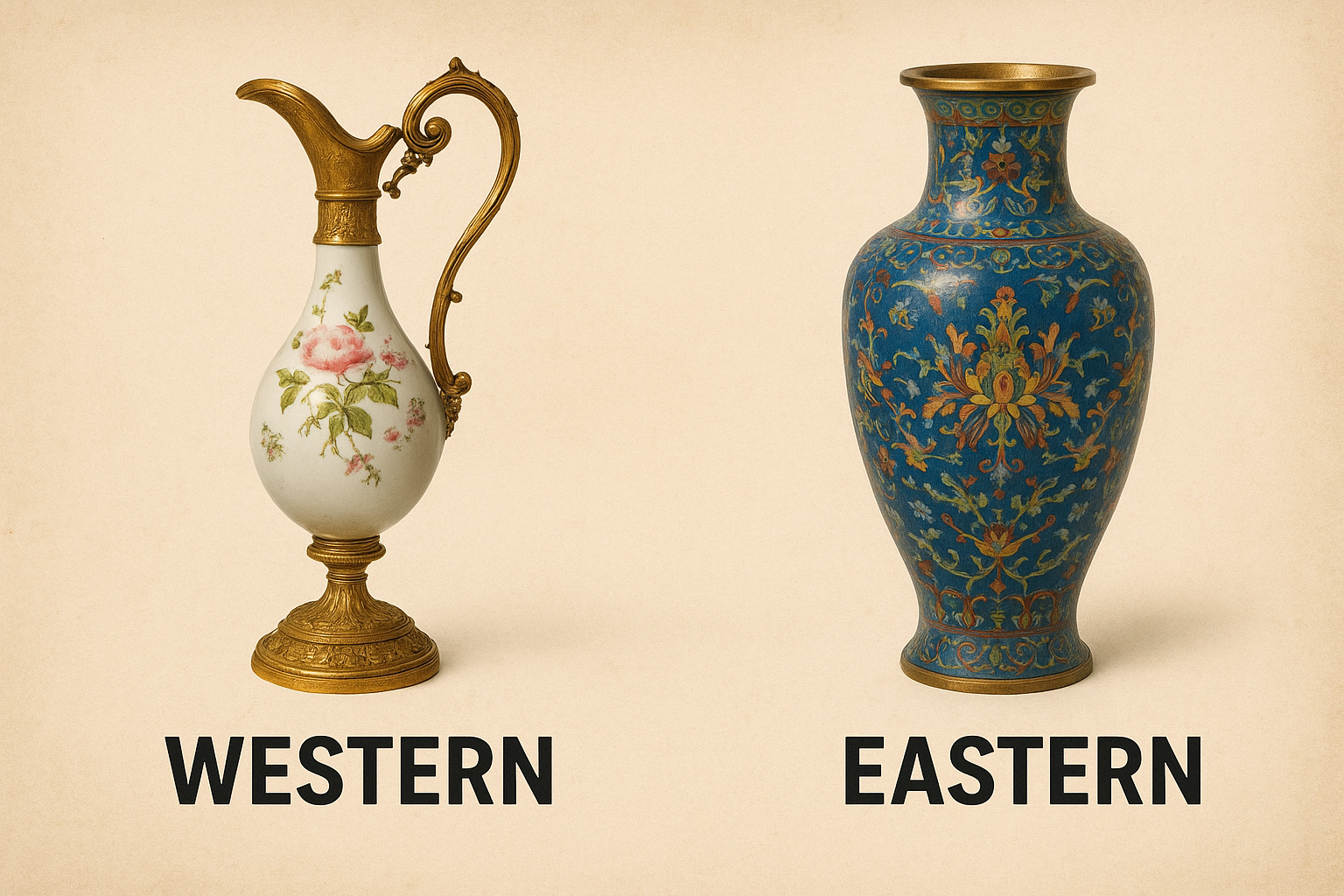On the vast Chengdu Plain in southwestern China, an ancient and mysterious civilization has awakened…
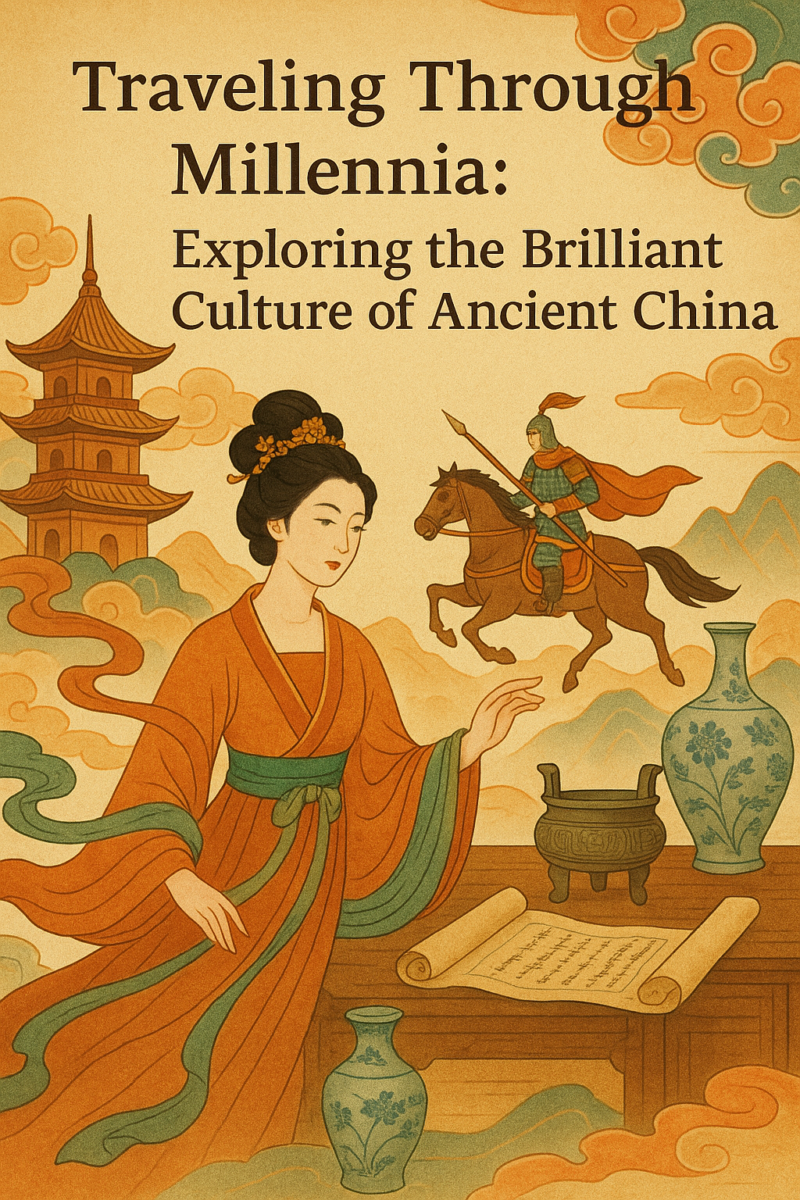
Traveling through thousands of years: exploring the brilliant culture of ancient China

First of all, welcome to this website. Today I will take you collectors to learn about China’s history and culture. China, as one of the oldest civilizations in the world, has a long history of more than 5,000 years. Ancient China has not only made great contributions in philosophy, politics, science and technology, and art, but its rich cultural heritage has also had a far-reaching impact. Today, we will travel through thousands of years, walk into this ancient land, and explore the brilliant culture of that glorious period.
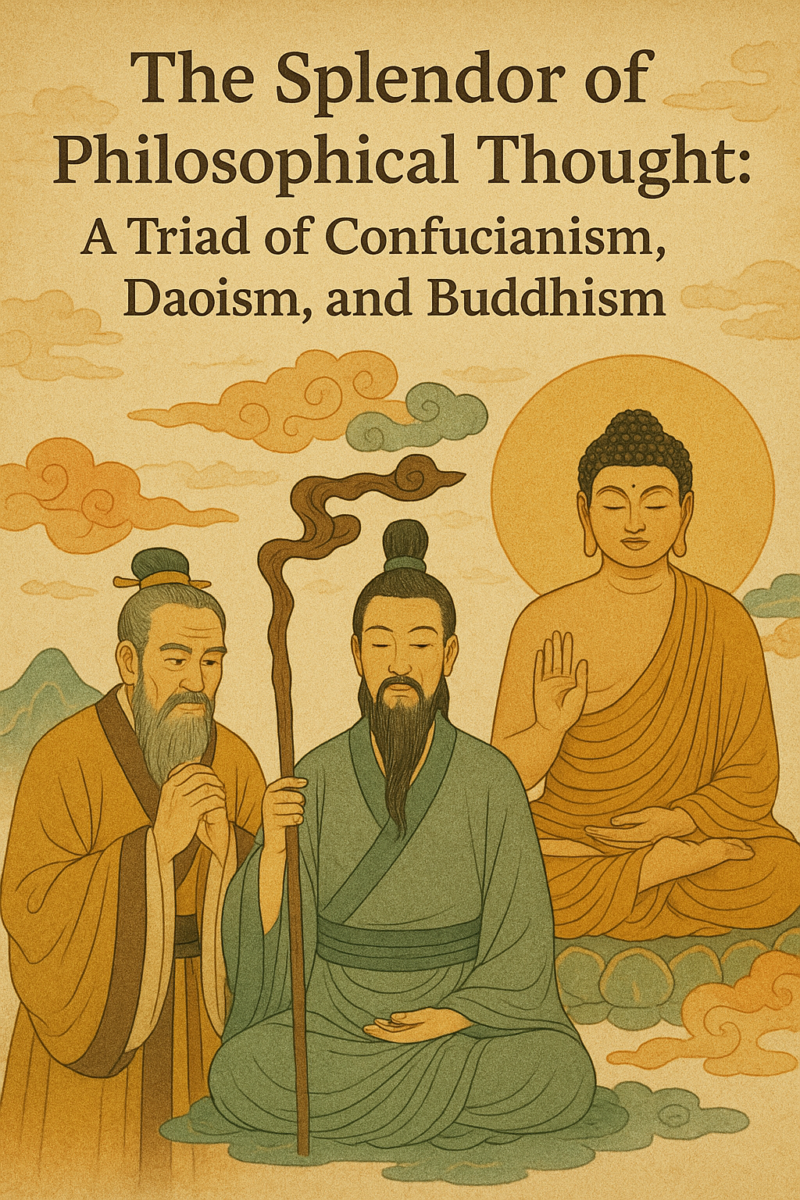
1. The brilliance of philosophical thought: the trio of Confucianism, Taoism and Buddhism
The philosophical thought of ancient China is like a bright star, guiding people’s morality and behavioral norms. Among them, the three most representative philosophical schools – Confucianism, Taoism and Buddhism – have shaped the core values of ancient Chinese society.
Confucianism originated from Confucius, and its core concepts are “benevolence, righteousness, courtesy, wisdom and trustworthiness”. Confucianism emphasizes the harmony of interpersonal and social relations, advocates filial piety and respect for the elderly and love for the young, and emphasizes the responsibility of individuals and society. This thought is deeply rooted in the hearts of the people and has influenced the culture and politics of China and even the entire East Asia for thousands of years.
Taoism was founded by Lao Tzu, emphasizing “ruling by doing nothing” and advocating a lifestyle that conforms to nature and does not compete with the world. Taoism has not only influenced China’s political ideas, but also had a profound impact on China’s art, medicine, architecture and other fields.
After Buddhism was introduced to China from India, it combined with Chinese local culture to form a unique “Han Buddhism”. The “compassion” and “wisdom” of Buddhism have gradually become the spiritual sustenance of the Chinese people and have influenced the spiritual pursuits of generations of people.
These three philosophical thoughts together constitute the spiritual backbone of ancient Chinese culture and shape the Chinese people’s way of thinking and code of conduct.
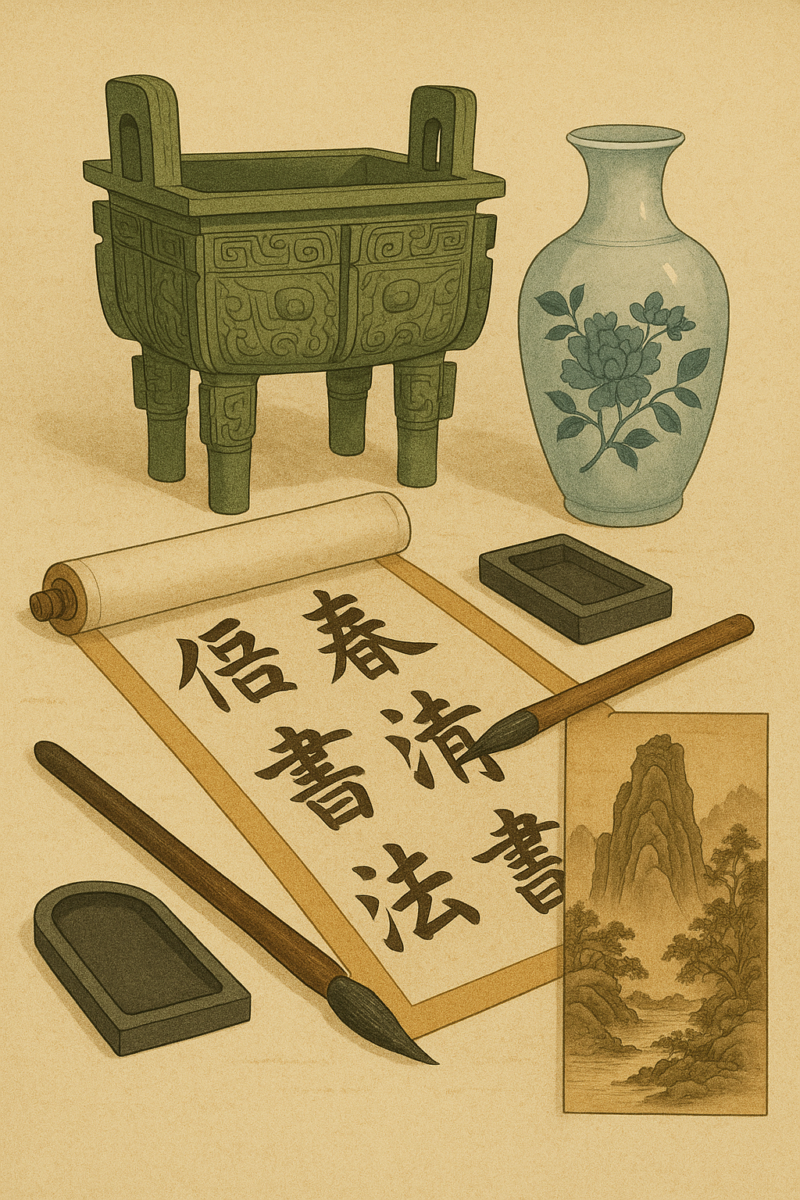
2.Art and Crafts: The Inheritance of Thousands of Years of Craftsmanship
The art and crafts of ancient China have world-renowned achievements. From bronze to porcelain, from painting to sculpture, each work of art carries a profound cultural heritage and historical memory.
As one of the most representative cultural symbols of ancient China, bronze ware embodies the outstanding wisdom of the ancient people in metallurgy and casting technology. The bronze ware of the Shang and Zhou dynasties is not only of great significance in practical functions, but many objects are also engraved with inscriptions that record historical events, religious rituals and social changes at that time.
Porcelain is a treasure of ancient Chinese craftsmanship. Since the Han and Tang Dynasties, porcelain has gradually become an important commodity in China’s foreign trade. Jingdezhen’s porcelain is even more famous. Its exquisite glaze and carving technology not only represent the pinnacle of ancient Chinese craftsmanship, but also an important part of the world’s cultural heritage.
Calligraphy and painting are one of the souls of Chinese culture. China’s calligraphy art pays attention to pen and ink, structure and charm, and has extremely high aesthetic value. The works of calligraphers of all ages, such as Wang Xizhi, Su Shi, and Yan Zhenqing, not only inherit the artistry of words, but also express the author’s personality and spiritual outlook.
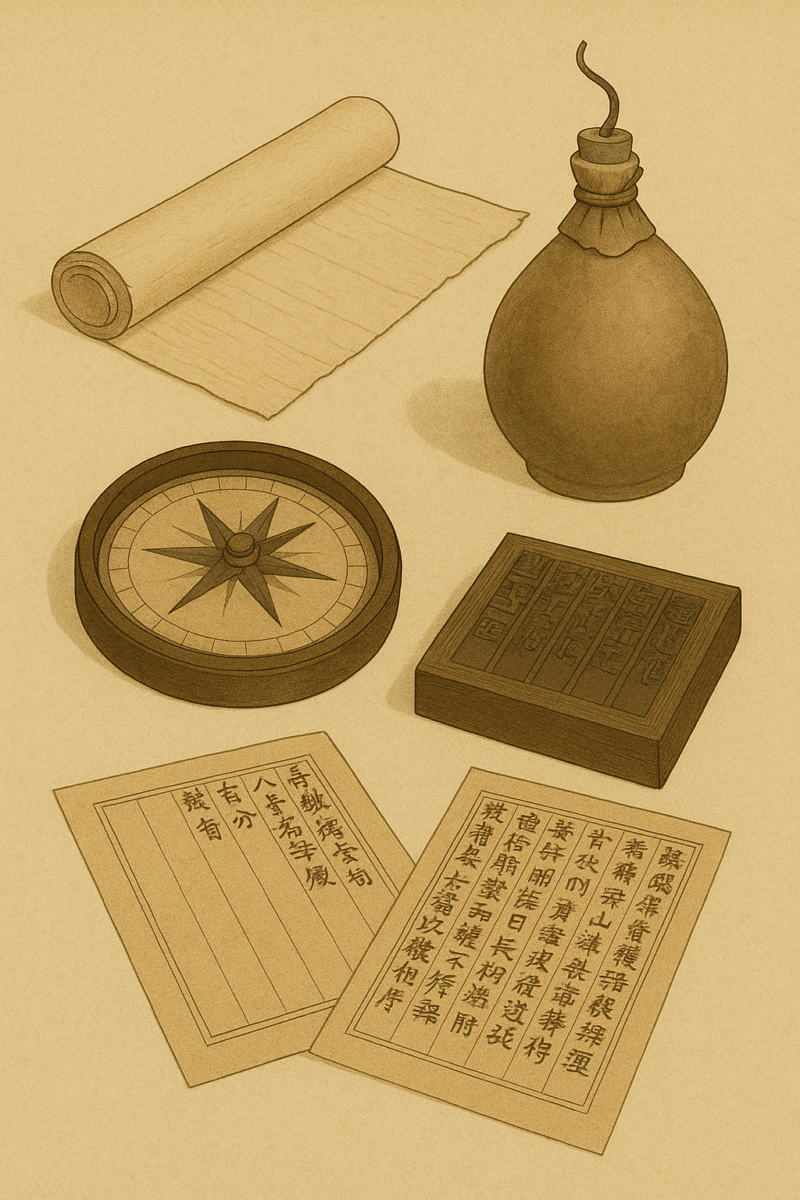
3. Technology and inventions: the crystallization of wisdom
The scientific and technological achievements of ancient China can be described as “brilliant”. From the “Four Great Inventions” to astronomy, medicine, mathematics and other fields, the development of science and technology in ancient China has made great contributions to world civilization.
Papermaking, gunpowder, compass, printing, these four inventions changed the world. The invention of papermaking made the dissemination of knowledge more convenient, and the use of gunpowder promoted the development of war and military technology. The emergence of the compass changed the navigation industry and paved the way for the advent of the Age of Exploration. Printing allowed culture to be widely spread and promoted the earliest Renaissance in human history.
In addition to the four great inventions, ancient China also made remarkable achievements in the field of medicine. The Yellow Emperor’s Classic of Internal Medicine laid the foundation for traditional Chinese medicine and has influenced the development of medicine in countries around the world to this day. Ancient Chinese astronomy also achieved remarkable results. Many principles and methods of astronomical observations had a profound impact on the later history of world astronomy.
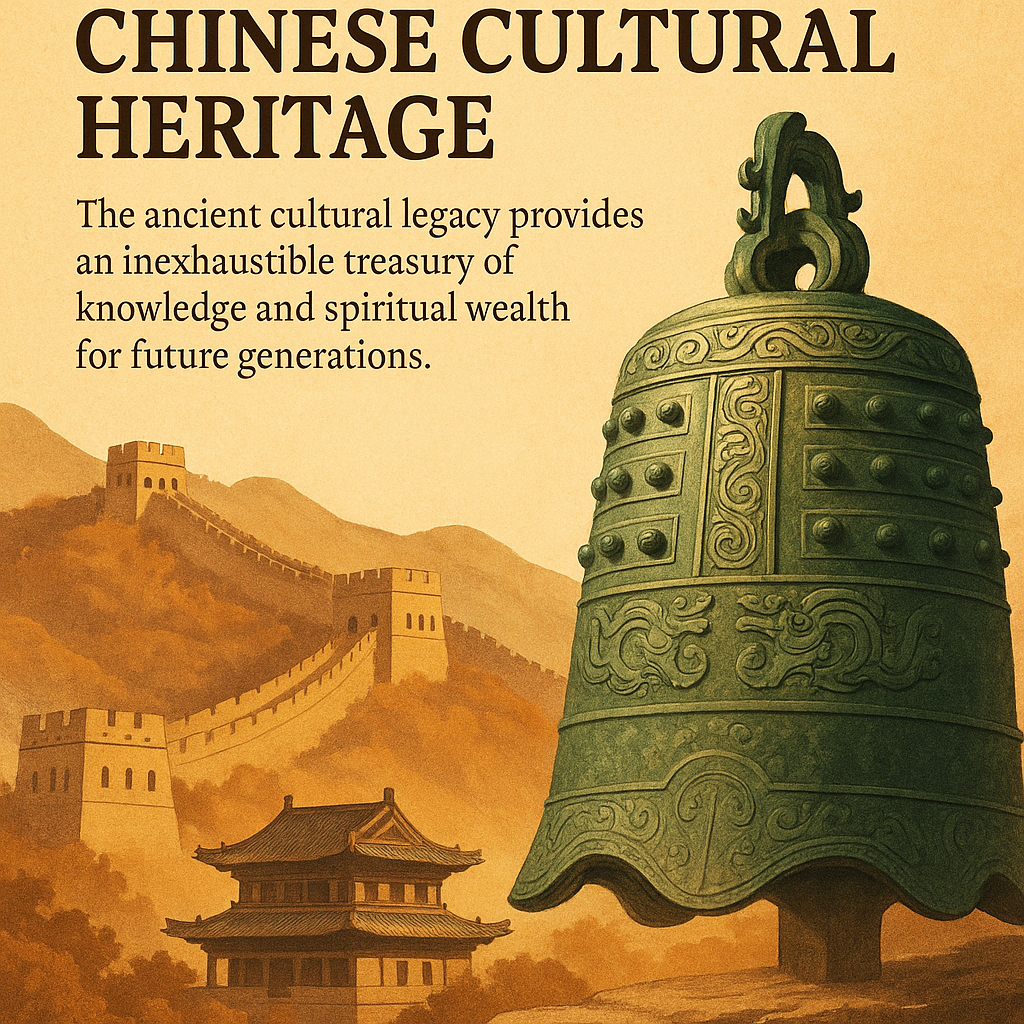
4. Inheritance and protection of cultural heritage
Today, the cultural heritage of ancient China still attracts people from all over the world with its unparalleled charm. From the murals of Dunhuang Mogao Grottoes to the majesty of the Great Wall, from the treasures of the Forbidden City to the mystery of the Han Tombs, the heritage of ancient culture provides an endless treasure trove of knowledge and spiritual wealth for future generations.
With the progress of the times, it is particularly important to protect and inherit these cultural heritages. Whether it is the assistance of modern technology or the improvement of cultural protection awareness, how to protect and inherit these brilliant cultural heritages in the context of globalization is the responsibility that our generation must shoulder.
Conclusion
Ancient Chinese culture is multi-dimensional and multi-layered, carrying five thousand years of wisdom and splendor. Today, when we look back on these cultural heritages, we are not only remembering the past splendor, but also looking for the motivation to move forward. After thousands of years, the brilliant culture of ancient China still shines brightly, influencing every corner of the world.

